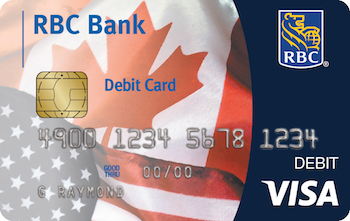Jonah Spiegelman is a cross-border attorney and tax expert who consults with Canadians who own property in the U.S. In a recent conversation, Spiegelman shared valuable insights that can help you prepare an estate plan that ensures reduced estate taxes, legal fees and hassle for your family, should the unexpected happen.
How your estate planning needs to change when you own property in the U.S.
As Spiegelman explains, there are three main questions Canadian residents who own property in the U.S. should consider when it comes to estate planning:
- What happens if you become incapacitated due to illness or injury while you own that piece of real estate?
- What happens if you pass away — how will the property be passed on to your beneficiaries?
- What exposure might there be to U.S. estate taxes?
As you might expect, the answers aren’t always simple, as each situation has considerably different implications.
Question #1: What if the owner becomes incapacitated?
Most Canadians with an estate plan will have a Power of Attorney (POA), which is intended to authorize another person to act on your behalf should you become incapacitated.
Setting up Power of Attorney (POA) may help address not only medical issues, but also legal issues. If the owner of a piece of real estate becomes incapacitated due to illness or injury, they are in effect unable to sell the property without some form of advance planning in place.
Powers of Attorney: Governed by Local Law
In the U.S., state laws determine the validity of a Canadian POA — and each state is different. While some state laws recognize a foreign POA (as long as it’s valid in your home province), Spiegelman does not recommend that you rely on your Canadian POA to manage incapacity issues.
“I have dealt with many clients who are trying to sell real estate in the U.S., and have run into serious logistical challenges. It can really hold up a sale,” Spiegelman explains.
“Getting a court order to try to prove the validity of a POA can cost a lot of money and takes a lot of time, plus it involves a great deal of hassle,” he says. “This is the kind of thing where some advance planning would really pay off.”
Question #2: What happens to U.S. property if the Canadian owner passes away?
Unlike Powers of Attorney, foreign wills are more widely recognized, and it’s unlikely your executor would have a problem in a foreign court with a probated will.
“But that doesn’t mean that I would recommend that people rely on a Canadian will to deal with U.S. property if the owner passes away,” Spiegelman explains.
“The best proof that a Canadian will is valid is that it has been probated in the province in which it was created. So when your executor is relying on a will to deal with your property following your death, they have to go through the entire procedure in the home jurisdiction first,” he says. “After that, they have to bring the will and the grant of probate to the state where the property is located, to get probate granted there.”
This may end up taking a very long time, and may add cost to the administration of the estate, depleting its value. And of course there’s the headache factor.
“In my experience, probate actions in the U.S. are very cumbersome. What’s more, the process is not particularly lucrative for attorneys, so getting the support and advice needed can be a challenge.”
Question #3: How do estate taxes figure into the equation?
Under the current Canadian-U.S. tax treaty, Canadians may take advantage of a tax efficiency, piggy-backing on exemptions available to Americans.
While every American is subject to estate tax on worldwide assets, “Right now, the exemption threshold has never been higher,” Spiegelman says. “Under 2018 tax rules, the first $11.2 million USD of worldwide estate value is tax-free. In 2000, that exemption was only $1 million. These rules change dramatically based on political winds — in 2017 the exemption was $5.6 million, but President Trump doubled it. As of 2026, it will likely revert to $5.6 million and who knows what the next administration will do with these rules. It is really difficult to know.”
Spiegelman cautions, “If your worldwide estate value is well under typical threshold levels, you likely won’t have to deal with U.S. estate tax; however, if you’re on the bubble ($5-6 million) you will want a structure in place to protect against it.”
How to protect your estate, and your family
Specifically structured trusts may help eliminate issues when it comes to incapacity, allow your beneficiaries to bypass probate, and may help your family deal with U.S. estate taxes. But trusts aren’t always right for everyone, and there are several other options to consider, depending on the value of the estate — and the state in which you own your property. “Having a really strong understanding of Canadian and U.S. estate and tax rules is critical to ensuring you have the right plan in place for you and your family,” Spiegelman says.
That’s why speaking with an expert before you buy property is the best course of action. Getting the right advice from the beginning may help to avoid problems that arise should the unexpected happen. And if you already own property? Speaking with an expert now may help mitigate issues later. A well-structured estate plan may save you and your family from lengthy legal processes and considerable hassle.
RBC Bank is RBC Bank (Georgia), National Association (“RBC Bank”), a wholly owned U.S. banking subsidiary of Royal Bank of Canada, and is a member of the U.S. Federal Deposit Insurance Corporation (“FDIC”). U.S. deposit accounts are insured by the FDIC up to the maximum amount permissible by law. U.S. banking products and services are offered and provided by RBC Bank. Canadian banking products and services are offered and provided by Royal Bank of Canada. U.S. deposit accounts are not insured by the Canada Deposit Insurance Corporation (“CDIC”).
This article is intended as general information only and is not to be relied upon as constituting legal, financial or other professional advice. A professional advisor should be consulted regarding your specific situation. Information presented is believed to be factual and up-to-date but we do not guarantee its accuracy and it should not be regarded as a complete analysis of the subjects discussed. All expressions of opinion reflect the judgment of the authors as of the date of publication and are subject to change. No endorsement of any third parties or their advice, opinions, information, products or services is expressly given or implied by Royal Bank of Canada or any of its affiliates.




















